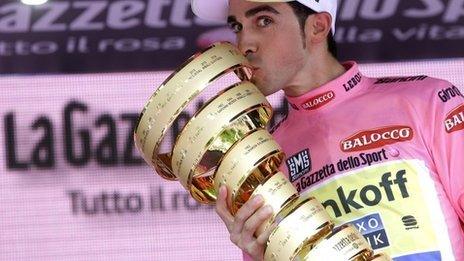Jessica Ennis-Hill: Olympic champion on course for Rio 2016
- Published
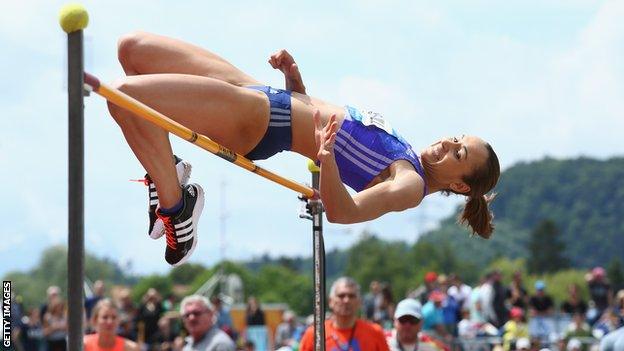
Ennis-Hill's points tally would have been enough for seventh place at London 2012
The wait is over, the mission completed and the comeback has begun for Jessica Ennis-Hill. The Olympic champion, in her first heptathlon since winning gold on that glorious Saturday evening in London nearly three years ago, finished fourth overall at the Hypo-Meeting in Gotzis, soaring above her initial points target. "I've still got that competitive edge, I've still got that strength to dig deep," she said, smiling. But how good was she and might she deliver another sparkling performance at an Olympics?
How good is fourth place?
As Ennis-Hill kneeled on the start line, head bowed as she placed each foot on the blocks, she did not know what to expect. No-one did. When she looked up to stare at the line of 10 hurdles in front of her, she was about to run at full speed into the unknown.
The 29-year-old knew she would have no trouble completing the first of heptathlon's disciplines, but could she hurdle, high jump, shot put and run 200m in the same day, then throw, jump and run some more 24 hours later?
Ennis-Hill qualifies for Rio 2016
"I think it's hard to know what to expect," she said on the Friday before competition, admitting to nerves and excitement.
But by Sunday afternoon, on a sun-soaked day in Austria, Ennis-Hill could say she was now ranked the fourth best heptathlete in the world, even though she had been absent from the sport for years, experienced the life-changing impact of motherhood and had her training disrupted by a troublesome Achilles.
"I'm really, really pleased," she said. "Some of my events have been pretty poor, pretty standard. I feel there's so much more to come. If someone had said I'd have had 6,520 beforehand I would have taken that with both hands. It's a pleasing position to be in after all that time off."
Can she still compete with the best?
Despite the frustration of not hurdling as well as she would have hoped, of not throwing the javelin as far as she would have wanted, and being below her best in every event, Ennis-Hill finished just 11 points adrift of third place and 27 points from second.
"It's a superb comeback," beamed Toni Minichiello, Ennis-Hill's coach.
But while she is within touching distance of the majority, there are the few - those who were once inspired by her - setting a high standard.
Brianne Theisen-Eaton, the Canadian who won the prestigious invitational event, amassed nearly 300 points more than the former world champion and recorded the highest score by a heptathlete since the Briton won in London.
Brianne Theisen-Eaton on Jessica Ennis-Hill |
|---|
"She's been an idol of mine. I remember watching her win and thinking 'I want to be just like her' and even being on the field with her competing I'm a little star-struck. She will always be somebody that I just root for because she's a remarkable athlete but even a better person." |
"There's a pack who are there, within reach," says Minichiello, placing his left hand at chest height. "And the best are up there," he adds, lifting his right hand level with his head.
World silver medallist and Commonwealth champion Theisen-Eaton wanted to make a statement in Gotzis and did so, achieving three personal bests on her way to a national record.
European double sprint champion Dafne Schippers was also in Gotzis, and was on course for second place - having recorded two personal bests - before injury prevented her from running the 800m.
And there should also be a mention for an athlete who wasn't in Austria, with European indoor pentathlon champion Katarina Johnson-Thompson unable to defend her title after opting to ease back to training after a knee injury.
"Thiessen-Eaton and Johnson-Thompson will give Jess food for thought," says former Olympic champion Denise Lewis. "Trying to find another 300 points isn't going to be easy. That's the challenge, but I think she can get back to the level she was at before she left."
What does she need to do to reach peak form?
"Speed is something I'm lacking," admitted Ennis-Hill while standing in a bin which had been turned into a makeshift ice bath.
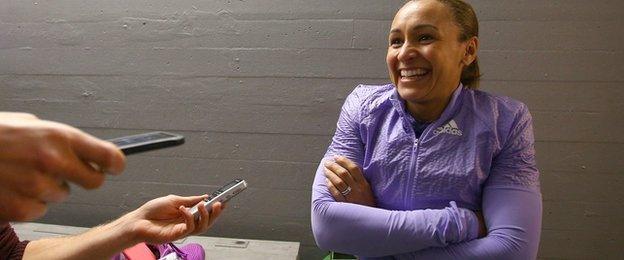
Ennis-Hill spoke to the press after the event while taking an ice bath in a wheelie bin
The former world champion has clocked quicker times in training than her opening run of 13.24 seconds in the 100 hurdles and has said she had been unable to do the necessary training to "do the sort of times I want to be running" in the sprints.
There's also room for improvement in the javelin as she threw 42.60m in Gotzis, having reached 43.88 in Loughborough a few weeks earlier.
"In some performances we should have done better because we've done better in training," adds Minichiello.
"Out here, when it's event five or six and there's fatigue, it's been awkward, but the girl's picked herself up and performed. It's been a difficult two days, she's suffered with tiredness."
What stood out?
"That fierce competitiveness is back and she's put out a warning to everybody else in the world," says Lewis.
Those wondering whether Ennis-Hill would still have the drive and desire to compete with the best in the world again after becoming a mother had their questions answered in Austria. When she led the pack around the first bend in the 800m, pushing and pushing until she crossed the line first in 2:09.21, there was no doubt.
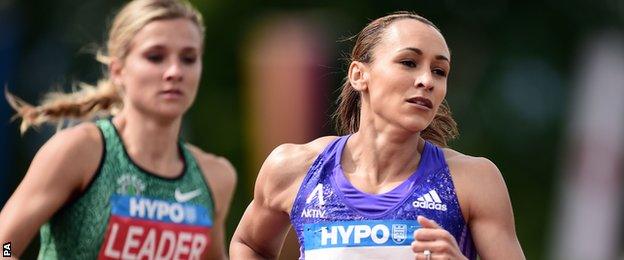
Ennis-Hill got the better of overall winner Theisen-Eaton in the concluding 800m
Her 800m time was 1.4 seconds short of her personal best 2:07.81, but it was a performance good enough to move her from eighth to fourth.
"Going into the 800m ranked eighth, when you're used to leading and contending for medals, is a difficult thing so she showed great fortitude in running in the way she did," says Minichiello.
"If you look at the race, she doesn't want to lose and that's something no coach can teach."
Ennis-Hill said proving a point to her rivals wasn't her main motivation in that 800m. "I wanted to send a message to myself, that I've still got that competitive edge, still got that strength to dig deep even when I'm not on for winning or scoring a personal best."
What next?
Beating the best in the world in Gotzis was never the target for Ennis-Hill. Her aim, as she has repeatedly stated, was to achieve the 6,200-points tally needed to qualify for next year's Olympics in Rio.
She achieved that with ease and, in the process, secured qualification for this summer's World Championships in Beijing.
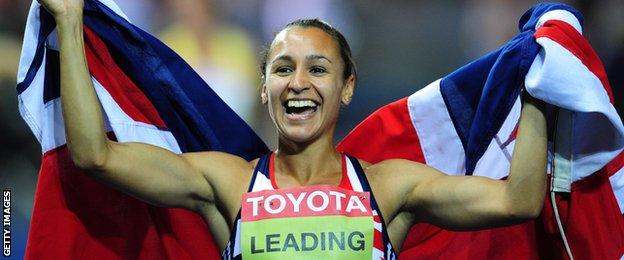
Ennis-Hill may have a tilt at claiming a second World Championship gold, six years after her first in Berlin
What are her plans for the summer? Will she compete in the Bird's Nest in August, giving herself the chance of becoming a two-time world champion?
Over the next week or so, Ennis-Hill and her team will deliberate over whether she can make the necessary progress in three months to improve by 200 to 300 points, perhaps risking injury should she push herself.
"The honeymoon period's gone now. You're fourth in the world, you've got to improve," says Minichiello.
"Do we go to Beijing? If you go to Beijing you have to contend for a medal so it's now about work. She's back, fine, but now you have to step on because 6520 points is not good enough. You have to move that on."
- Published31 May 2015
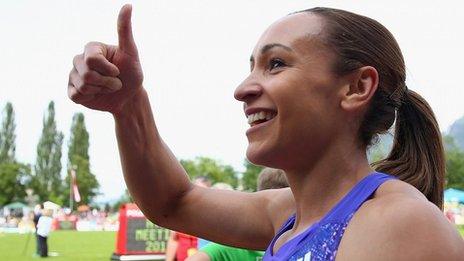
- Published31 May 2015
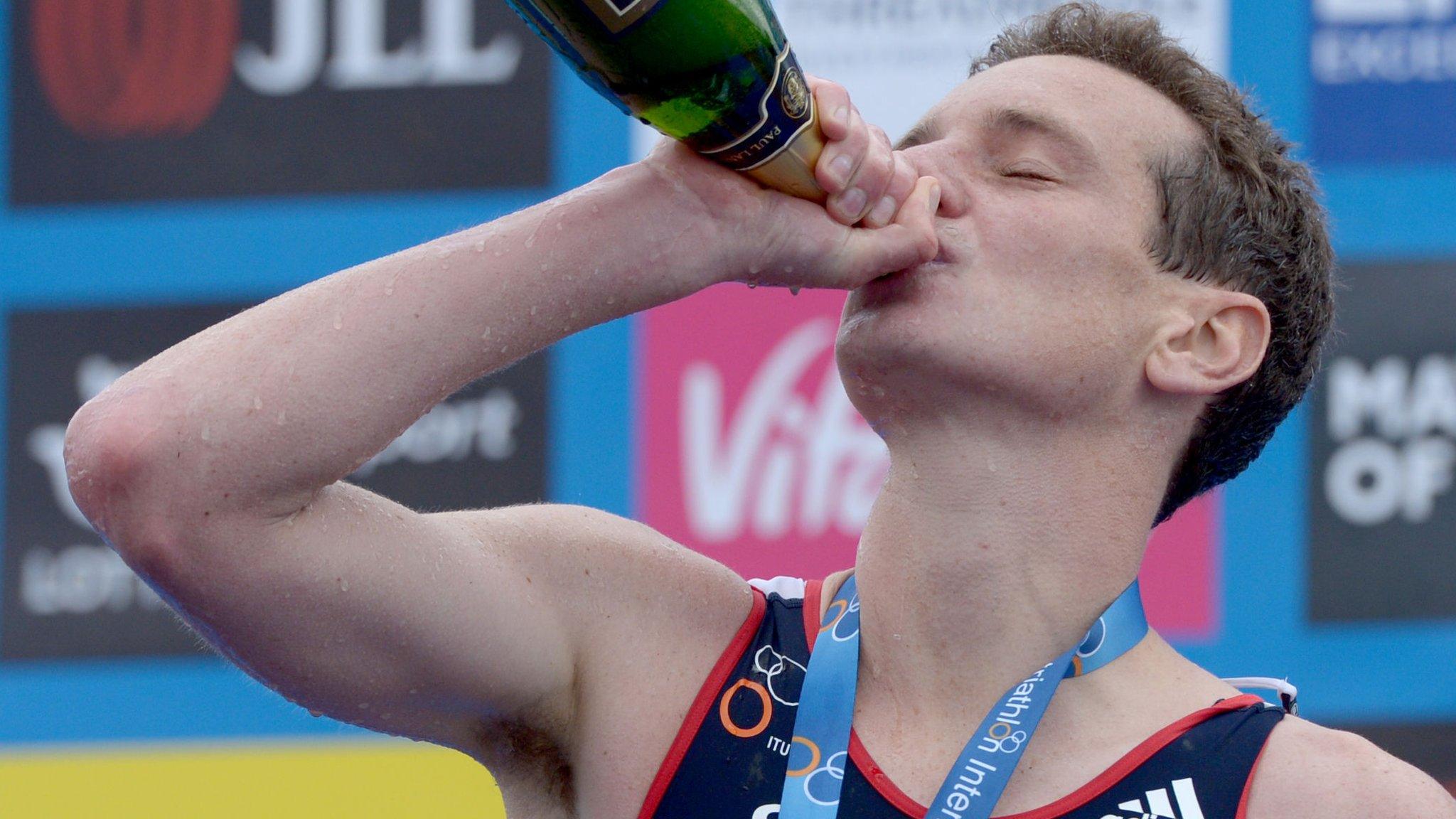
- Published1 June 2015
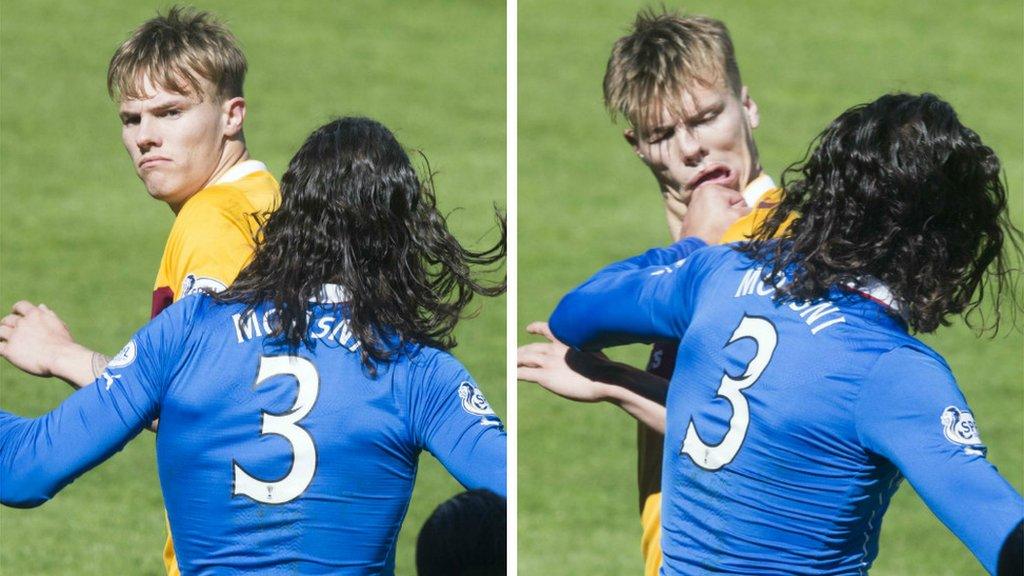
- Published31 May 2015
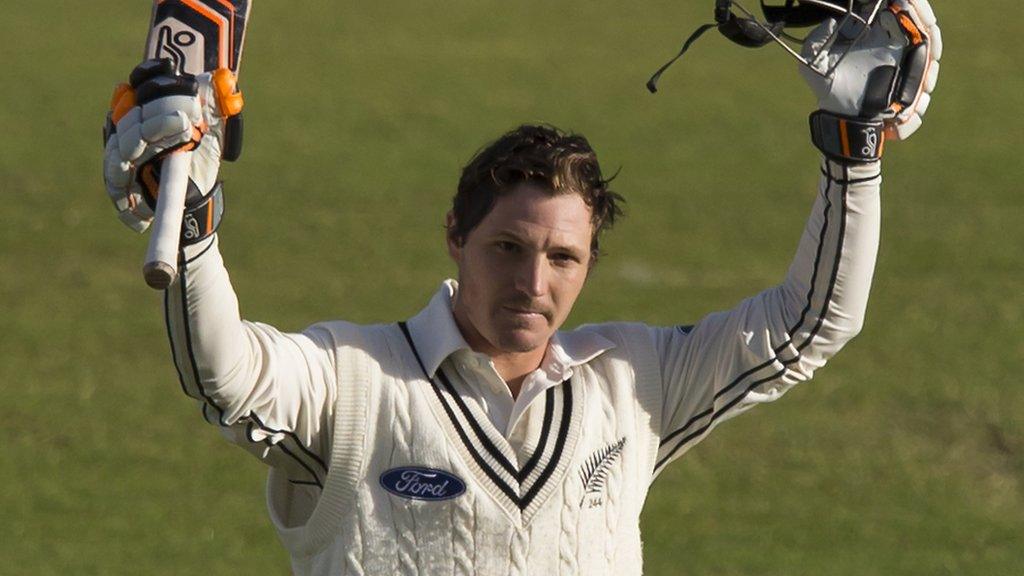
- Published31 May 2015
